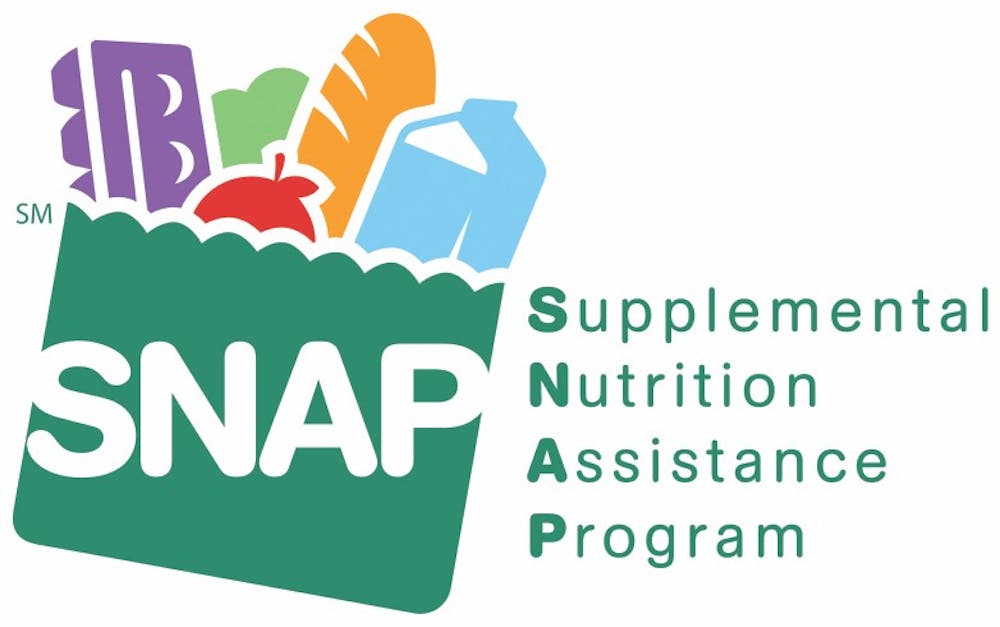How to apply for Indiana SNAP benefits
Each state has its own requirements for administering SNAP benefits, which can be used at any grocery store that accepts food assistance. In Indiana, eligible residents can apply online at the state Family and Social Services Administration website.
Step 1: Visit the online benefits portal on the Indiana Family and Social Services Administration website, and select “apply for SNAP and/or cash assistance online.”
Step 2: Fill in identifying information, including applicant name and address, in the application boxes. Social security numbers for each member of the household applying for assistance are also required.
Step 3: After completing SNAP paperwork, a phone call interview reviewing eligibility will be required to complete the process. Applications for assistance will typically be reviewed and subsequently approved or denied within 30 days of completing the application.
Step 4: If approved, up to $194 per month will be loaded to a Hoosier Works card depending on the financial need of applicants. This electronic benefit transfer can be used like a debit card at any store in the United States that accepts food assistance.
Many stores have been approved for online ordering and delivery using SNAP benefits, including Walmart, Amazon and ALDI Instacart. The United States Department of Agriculture expanded online ordering options to 47 states and the District of Columbia.
For questions regarding SNAP benefits, call the Family and Social Services Administration at 800-403-0864 weekdays between 8 a.m. and 4:30 p.m.
Source: Indiana Family and Social Services Administration and Alan Shannon, United States Department of Agriculture public affairs director
Like most other Americans following the sharp increase of unemployment rates during the COVID-19 pandemic, Lilyana Salazar’s work situations have changed. Salazar, senior biology major, is the executive director of Cardinal Kitchen, which has expanded its operation hours to provide students with food and toiletries as more people rely on food banks and federal assistance to get the help they need.
Usually, Salazar said, Cardinal Kitchen would limit the number of items students are able to receive from the food pantry, but it has adapted some of its previous restrictions to offset some of the struggles people are experiencing during the pandemic.
“We have increased the number of items given in each bag along with the number of toiletries students can take,” Salazar said. “We know this pandemic has been hard on the community, so we figured increasing the amount of items given to clients would help.”
In addition to providing food for students, Salazar said Cardinal Kitchen posted information about temporarily expanded benefits for the federal Supplemental Nutrition Assistance Program (SNAP) on its social media accounts.
SNAP benefits were temporarily expanded to full- and part-time students who are eligible for a federal work-study program Jan. 16. The benefits are set to expire 30 days after the nationwide COVID-19 public health emergency is declared over.
“I think the recent expansion is an amazing idea,” Salazar said. “I wish it would've happened sooner, but I'm grateful that they did it now. I'm hoping this expansion can last after the pandemic, but we will see.”
SNAP benefits are traditionally only available to students enrolled in universities less than half-time unless they meet exemptions such as working at least 20 hours per week, being a single parent for a child under the age of 12 or having a physical or mental disability.
Under the Consolidated Appropriations Act passed in January 2021, students only need to be eligible for work-study programs or have an expected family contribution of 0 in the current academic year to qualify for SNAP benefits.
Tiffany Peters, assistant dean of students, works with Ball State students to connect them with resources they may need to support themselves. She said no one has contacted her regarding SNAP benefits specifically, but she tells students the benefits are available.
“I have been serving students who need funding for groceries, and, through some of those conversations, I’ve been able to make them aware of the new eligibility changes to SNAP and referring them to the online portal,” she said. “If they think they’re eligible, they should go ahead and try now.”
Peters said she also makes students aware of local food banks, including Cardinal Kitchen and Second Harvest Food Bank.
Second Harvest Food Bank is a member of Feeding America and hosts local tailgates around Delaware County and surrounding areas. Kim Gillenwater, marketing manager for the Second Harvest Food Bank of East Central Indiana, said she was happy to see SNAP benefits were temporarily expanded and she hopes eligible students are able to receive them.
"The recent expansion of the SNAP program is such a relief for so many who live with food insecurity daily," Gillenwater said via email. "It also shines a light on groups in need who wouldn’t typically be thought of when thinking of hunger and the need for assistance."
Peters said students who have tried to apply for SNAP benefits before and been denied may be accepted if they try again during the period of extended eligibility.
“For students who are not able to afford groceries or have nutritious food accessible to them, this will help tremendously through the course of a month,” she said. “I would absolutely recommend applying.”
Peters said the online application process can be time consuming and sometimes confusing, but the convenience of receiving benefits online will be worth it.
“Any college and university is going to have some support available for students but nothing like a federal assistance program,” she said. “If [receiving SNAP benefits] means you have access to the nutritious food you need to be able to focus and be successful in your classes, then I would encourage anyone who’s eligible to start the application process.”
Contact Grace McCormick with comments at grmccormick@bsu.edu or on Twitter @graceMc564.





